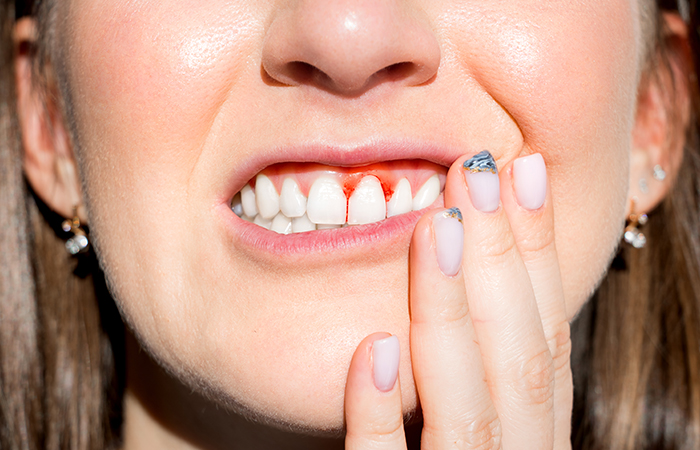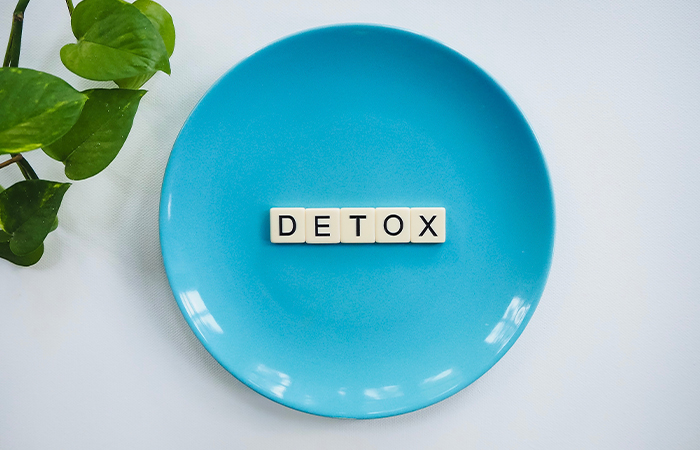The Role of Vitamin C in Preventing and Treating Gum Bleeding

Introduction
Gum bleeding is a common dental issue that can range from mild annoyance to a sign of more serious oral health problems. While factors like poor oral hygiene and gum disease play a significant role in gum bleeding, there’s a nutrient that often goes overlooked in the context of oral health: vitamin C. In this article, we will explore the fascinating connection between vitamin C and gum bleeding, highlighting the essential role this vitamin plays in maintaining healthy gums and preventing bleeding.
Understanding Gum Bleeding
Gum bleeding, also known as gingival bleeding, occurs when the blood vessels in the gum tissues break and release blood. It can manifest as bleeding when brushing, flossing, or even spontaneously. The most common cause of gum bleeding is gum disease, which encompasses gingivitis (mild inflammation of the gums) and periodontitis (a more severe form of gum disease involving the supporting structures of the teeth). Other factors contributing to gum bleeding include:
– Poor Oral Hygiene: Inadequate brushing and flossing can lead to the accumulation of plaque and tartar on teeth, which irritates and inflames the gums.
– Medications: Some medications, such as anticoagulants and certain antihypertensives, can increase the risk of gum bleeding.
– Medical Conditions: Certain systemic diseases, like diabetes and blood disorders, can make gums more prone to bleeding.
– Hormonal Changes: Hormonal fluctuations, such as those during pregnancy or menstruation, can affect gum health and lead to bleeding.
– Nutritional Deficiencies: Deficiencies in vitamins and minerals, including vitamin C, can compromise gum health and contribute to bleeding.
Vitamin C: A Brief Overview
Vitamin C, also known as ascorbic acid, is a water-soluble vitamin that plays numerous critical roles in the body. It is essential for the growth, development, and repair of all body tissues, and it acts as a powerful antioxidant, protecting cells from damage caused by free radicals. While vitamin C is often associated with boosting the immune system and preventing scurvy, its impact on oral health, specifically gum bleeding, is less commonly discussed but equally important.
The Role of Vitamin C in Gum Health
– Collagen Production: One of the key functions of vitamin C is its role in collagen synthesis. Collagen is a protein that forms the structural framework for various tissues in the body, including the gums. Adequate vitamin C is necessary for the production of healthy, strong gum tissue. When vitamin C is lacking, gums can become weak and susceptible to bleeding.
– Antioxidant Protection: Vitamin C’s antioxidant properties help combat inflammation and oxidative stress in the gums. Chronic inflammation is a major contributor to gum disease and bleeding. By reducing inflammation, vitamin C can help prevent and alleviate gum problems.
– Wound Healing: Vitamin C plays a pivotal role in wound healing throughout the body, including the gums. When gum tissue is injured, as is often the case in gum disease, vitamin C helps repair the damaged tissue and restore gum health.
Scientific Evidence Supporting Vitamin C's Role
Numerous studies have investigated the relationship between vitamin C and gum bleeding. While more research is needed to fully understand the mechanisms at play, the existing evidence suggests a clear connection:
– Prevention of Gingivitis: A study published in the Journal of Clinical Periodontology found that individuals with higher vitamin C intake were less likely to develop gingivitis. This supports the idea that adequate vitamin C can help prevent the initial stages of gum disease, which often involve gum bleeding.
– Improved Periodontal Health: Research published in the Journal of Periodontology has shown that vitamin C supplementation can improve periodontal health by reducing bleeding on probing and improving the attachment of gum tissue to teeth.
– Reduced Inflammation: Vitamin C’s anti-inflammatory properties have been demonstrated in multiple studies. By reducing inflammation in the gums, vitamin C may help prevent and alleviate gum bleeding associated with gum disease.
– Enhanced Immune Response: A strong immune system is essential for fighting off oral infections and gum disease. Vitamin C supports immune function, helping the body better defend against harmful bacteria in the mouth.
Practical Tips for Maintaining Healthy Gums with Vitamin C
– Dietary Sources: Ensure you’re getting an adequate amount of vitamin C through your diet. Citrus fruits (oranges, lemons, grapefruits), strawberries, kiwi, bell peppers, and broccoli are excellent sources of vitamin C.
– Supplements: If your diet is lacking in vitamin C or if you have specific health concerns, consider vitamin C supplements. Consult with a healthcare professional before starting any supplementation regimen.
– Oral Hygiene: Maintain a strict oral hygiene routine, including brushing, flossing, and regular dental check-ups. Vitamin C can complement good oral hygiene practices.
– Quit Smoking: Smoking is a significant risk factor for gum disease and gum bleeding. If you smoke, consider quitting to improve your gum health.
– Manage Stress: Chronic stress can weaken the immune system and exacerbate gum problems. Engage in stress-reduction techniques such as meditation or yoga.
Conclusion
In conclusion, vitamin C is a vital nutrient with a profound impact on gum health and the prevention of gum bleeding. Its role in collagen production, antioxidant protection, wound healing, and immune support makes it an essential component of maintaining healthy gums. While vitamin C alone cannot guarantee perfect oral health, it is a crucial part of a comprehensive strategy to prevent and address gum bleeding. Incorporating vitamin C-rich foods into your diet and maintaining good oral hygiene practices can go a long way in promoting healthy gums and a beautiful smile. Remember, when it comes to gum health, vitamin C is your ally in the fight against bleeding gums.
If you’re interested in how vitamin and nutrient deficiencies affect other aspects of your health, don’t miss our article Are Skin Issues a Sign of Vitamin and Nutrient Deficiencies?
You can also learn how the right vitamins can support your energy levels in Exploring the Best Vitamins for Tiredness and Lack of Energy, a helpful guide for anyone experiencing fatigue or burnout.










